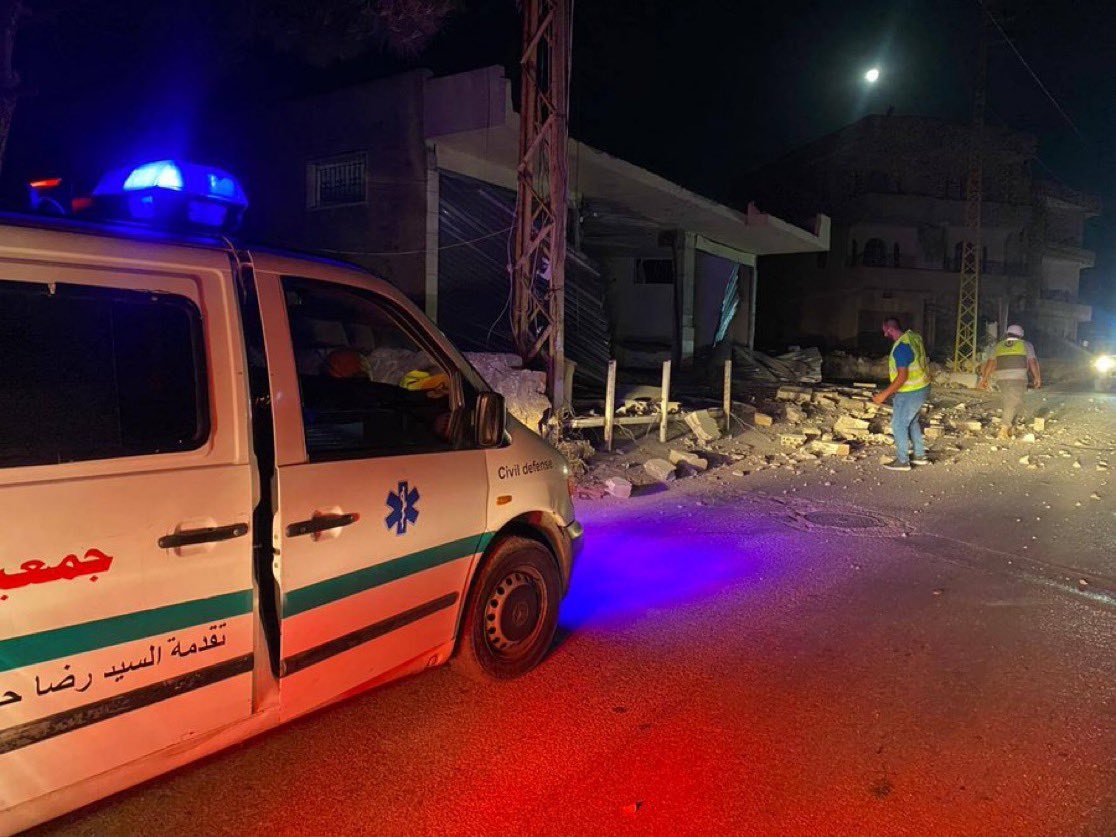The Israeli army confirmed a precision strike on a Hezbollah military command site in Yohmor, southern Lebanon. The center was reportedly disguised as a civilian café, raising renewed concerns about the militant group’s tactics and the risks to non-combatants. The attack is part of escalating cross-border tensions with potential regional implications.
Israeli Airstrike Hits Alleged Hezbollah Command Center Hidden in Lebanese Café


Israeli Airstrike Targets Hezbollah Command Center in Southern Lebanon
In a development that underscores the escalating tensions along the Israel-Lebanon border, the Israeli Defense Forces (IDF) confirmed on Wednesday night that it had conducted an airstrike targeting a Hezbollah military command center in the town of Yohmor, located in southern Lebanon. According to the IDF, the facility was operating under the guise of a civilian structure—a tactic the military claims is emblematic of Hezbollah’s strategy to embed military assets within civilian infrastructure.
A Civilian Facade
The IDF stated that the command center was concealed within a building that Lebanese media described as a local café. This revelation has sparked renewed debate over Hezbollah’s alleged use of civilian sites to shield its military operations. The Israeli military emphasized that this tactic not only endangers local populations but also constitutes a violation of international norms and the understandings between Israel and Lebanon.
“The headquarters operated under the guise of a civilian structure, with the Hezbollah terror organization exploiting the civilian population to advance terror activities against the State of Israel,” the IDF said in a statement.
Mitigating Civilian Harm
In its official communication, the IDF stressed that it had taken extensive precautions to minimize civilian casualties. These measures reportedly included aerial surveillance, precision targeting, and advance warnings to residents in the vicinity. The military did not disclose the exact nature of these warnings, but emphasized that the operation was carried out with “numerous steps to mitigate the risk of harming civilians”.
This approach reflects Israel’s broader strategy in its ongoing conflict with Hezbollah, which has included efforts to balance military objectives with international scrutiny over civilian safety.
Hezbollah’s Response and Regional Implications
As of this writing, Hezbollah has not issued an official response to the strike. However, the incident is likely to fuel further animosity between the two sides, especially given the sensitive nature of the location and the alleged use of a public venue for military purposes.
Lebanese media outlets have reported that the café was a popular gathering spot in Yohmor, raising concerns among residents about the potential for future strikes in civilian areas. The perception that Hezbollah is using such spaces for military operations may deepen internal divisions within Lebanon, where the group maintains significant political and military influence.
A Pattern of Escalation
This strike is part of a broader pattern of Israeli military activity in southern Lebanon. Over the past several months, the IDF has conducted multiple operations targeting Hezbollah infrastructure, including weapons depots, rocket launchers, and command centers. Many of these sites, according to Israeli sources, are embedded within residential neighborhoods or public buildings.
The IDF has repeatedly accused Hezbollah of violating ceasefire agreements and international law by placing military assets in civilian zones. In turn, Hezbollah has framed these strikes as acts of aggression and has vowed to retaliate, raising fears of a broader conflict.
International Reactions
While international reactions to the latest strike are still emerging, previous incidents of this nature have drawn mixed responses. Human rights organizations have often called for independent investigations into the use of civilian structures for military purposes, as well as the proportionality of Israeli responses.
The United Nations has previously urged both parties to exercise restraint and adhere to the terms of the ceasefire agreement brokered after the 2006 war. However, enforcement of these terms remains elusive, and the border region continues to be a flashpoint for military and political tensions.
Looking Ahead
The strike in Yohmor highlights the fragile nature of the current security situation in southern Lebanon. As Israel continues its campaign against Hezbollah’s military infrastructure, the risk of civilian casualties and regional destabilization remains high.
For residents of Yohmor and surrounding areas, the incident serves as a stark reminder of the precarious balance between war and peace. Whether this latest strike will deter future Hezbollah activity or provoke further escalation is yet to be seen—but it undeniably adds another layer of complexity to an already volatile region

 বাংলা
বাংলা  Spanish
Spanish  Arabic
Arabic  French
French  Chinese
Chinese 







